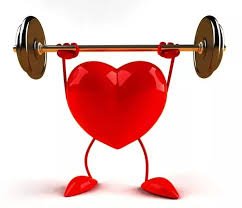The Importance of Regular Physical Activity for Heart Health
In an era where sedentary lifestyles and modern conveniences dominate, the role of regular physical activity in maintaining heart health cannot be overstated. This article explores in-depth the Importance of regular physical activity and significance of staying active for cardiovascular well-being, providing insights and practical tips to inspire individuals to prioritize exercise in their daily routines.
Understanding Heart Health and Its Importance
The heart, a vital organ responsible for pumping blood throughout the body, requires regular exercise to function efficiently. Heart health encompasses various factors such as blood pressure, cholesterol levels, and overall cardiovascular fitness. Engaging in physical activity plays a crucial role in reducing the risk of heart disease, stroke, and other cardiovascular conditions.
Benefits of Physical Activity for Heart Health
Regular exercise offers a myriad of benefits that directly contribute to heart health:
- Strengthens the Heart Muscle: Physical activity, particularly aerobic exercises like brisk walking, jogging, swimming, and cycling, strengthens the heart muscle. This strengthens the heart’s ability to pump blood more efficiently, improving circulation and reducing the workload on the heart.
- Lowers Blood Pressure: Exercise helps lower blood pressure by promoting better circulation and reducing the stiffness of blood vessels. This, in turn, reduces the strain on the heart and lowers the risk of hypertension, a major risk factor for heart disease.
- Improves Cholesterol Levels: Physical activity increases levels of high-density lipoprotein (HDL) cholesterol, often referred to as “good” cholesterol, which helps remove low-density lipoprotein (LDL) cholesterol (“bad” cholesterol) from the arteries. This process helps prevent the buildup of plaque in the arteries, reducing the risk of atherosclerosis and coronary artery disease.
- Promotes Weight Management: Regular exercise plays a crucial role in maintaining a healthy weight or achieving weight loss. Excess weight, especially around the abdomen, is associated with an increased risk of heart disease. Physical activity helps burn calories, build muscle mass, and boost metabolism, contributing to weight management and overall health.
- Enhances Mental Well-Being: Physical activity stimulates the production of endorphins, neurotransmitters that promote feelings of happiness and reduce stress and anxiety. Stress management is crucial for heart health, as chronic stress can contribute to hypertension and heart disease.
Types of Physical Activities Beneficial for Heart Health
A well-rounded fitness routine should include a combination of aerobic exercises, strength training, and flexibility exercises:
- Aerobic Exercises: Activities that increase the heart rate and breathing rate over a sustained period, such as walking, jogging, dancing, swimming, and cycling.
- Strength Training: Exercises that target major muscle groups, using resistance training techniques such as weightlifting, resistance bands, or bodyweight exercises like push-ups and squats.
- Flexibility and Stretching: Stretching exercises to improve flexibility and range of motion, reducing the risk of injury during physical activity.
Incorporating Physical Activity into Daily Life
To reap the benefits with the Importance of regular physical activity for heart health, consider the following tips:
- Set Realistic Goals: Start with small, achievable goals and gradually increase the duration and intensity of your workouts.
- Find Activities You Enjoy: Choose activities that you find enjoyable and sustainable, whether it’s dancing, hiking, gardening, or playing a sport.
- Make It a Habit: Schedule regular exercise sessions into your weekly routine, aiming for at least 150 minutes of moderate-intensity aerobic activity or 75 minutes of vigorous-intensity aerobic activity per week.
- Stay Consistent: Consistency is key to maintaining heart health benefits. Mix up your workouts to prevent boredom and keep your body challenged.
- Listen to Your Body: Pay attention to how your body feels during and after exercise. If you experience pain or discomfort, consult a healthcare professional.
Conclusion
Regular physical activity is essential for maintaining optimal heart health and reducing the risk of cardiovascular diseases. By incorporating a variety of exercises into your routine and making fitness a priority, you can enhance your overall well-being and enjoy a healthier, more active lifestyle. Remember, every step you take towards staying active brings you closer to a stronger, healthier heart for years to come.
Thanks for visiting Gymbag4u.com
Along with above article on Importance of regular physical activity, you may also love our following articles. https://gymbag4u.com/the-importance-of-regular-exercise-for-optimal-health/ and https://gymbag4u.com/the-top-10-benefits-of-regular-exercise-for-physical-and-mental-health/ and https://gymbag4u.com/unveiling-the-power-of-cardio-and-multifaceted-benefits-of-cardiovascular-exercise/
